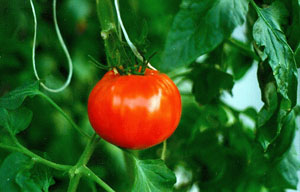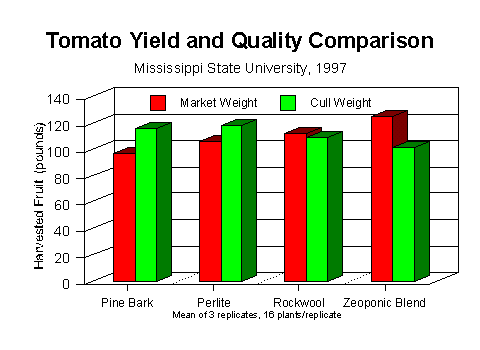Up
Products
Distributors
Research
Contacts
Zeoponic Technology
Zeolite
| |
 |
 |
|
Tomato (MSU) |
 |
 |
|
Comparative Hydroponic - Leachate Research |
 |
 |
|
The effects on greenhouse tomato bag culture fruit production and leachate quality of blending ZeoponiX mediums into composted pine bark at varying percentages (25% up to 50%),
compared to 100% pine bark, or rock wool or perlite, was tested in a complete random block experiment (16 plants/plot, 3 replicates). The trials were conducted by Mississippi State University under contract
to Boulder Innovative Technologies, coordinated by ZeoponiX, Inc. |
|
|
 |
 |
|
Copyright
2000 by ZeoponiX, Inc. and Boulder Innovative Technologies, Inc.
P.O. Box 19105, Boulder, CO 80308 USA (303) 673-00098
|
 |
|
|
[] |
|

